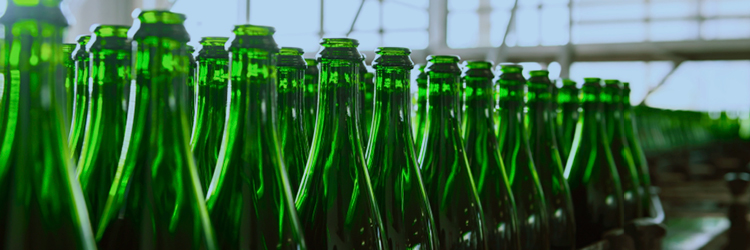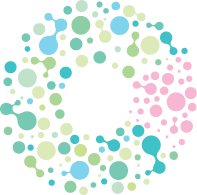16 December 2019
EPR schemes across Europe join forces with ‘Close the Glass Loop’ to promote circularity of glass packaging
Extended Producer Responsibility (EPR) Organisations across Europe are committed to increasing the quality and efficiency of the glass recycling value chain through separate collection, quality recycling and closed loop manufacturing of glass.

Brussels, 16 December 2019 –
Extended Producer Responsibility (EPR) organisations across Europe are committed to increasing the quality and efficiency of the glass recycling value chain through separate collection, quality recycling and closed loop manufacturing of glass. A practical example of how to achieve genuine circularity of glass packaging is ‘Close the Glass Loop’ – the major industry stewardship programme for glass packaging initiated by FEVE and aiming to reach a post-consumer glass container collection target of 90% by 2030. In parallel, the initiative should ensure that the recycled material is reused again into a new production loop of glass containers.
EPR organisations, as the link between the different stakeholders, have a key role in promoting and facilitating better collection, high quality sorting and recycling of used packaging including glass, thus ensuring the achievement of the initiative’s objectives.
EXPRA’s Managing Director, Joachim Quoden, commented: “EXPRA supports ‘Close the Glass Loop’ as our organisation and its members strive to constantly improve their performance by supporting and investing in innovative collection models, high quality sorting and recycling and especially in communication and information campaigns for consumers, who at the end of the day are the engine at the core of the whole process. We look forward to closer cooperation with the other stakeholders in the value chain in finding the most efficient ways and means to face challenges but also exploit opportunities stemming from the new EU Waste Legislation.”
“This commitment by the EPR community to Close the Glass Loop across Europe is a strong signal for the glass industry that the time is now to make a difference for the circular economy,” stated Michel Giannuzzi, President of FEVE. “As an industry we can count on a material with unique potential in terms of recyclability. We know there are big challenges ahead to make the most of this potential, and to face them it is essential that we foster a strong partnership with EPR schemes on European and especially on national level.”
The role of EPR in glass collection and maximising glass recycling was discussed during a Workshop on 12 December 2019 in Brussels, bringing together participants from 14 different countries and 16 different EPR schemes. The main issues that were raised were how glass manufacturers and cullet processors cooperate to minimise losses and increase the quality of the recycled glass entering the furnace, how EPR schemes operate to raise awareness and educate citizens to collect more and better glass and which actions they take to make sure this happens without compromising on the quality of the material, and how to best develop the bottle bank system to reach higher collection goals. Eight different national perspectives were presented and discussed, highlighting the diversity of waste management systems across Europe, but also the importance of tailored solutions in every country.
Jean Hornain, General Director of CITEO commented: “We welcome such an initiative on European level that will give a strong framework to our actions in France. Only last month, we co-signed the Charter 100% Verre Solutions with 24 other organizations, including the association of local authorities. We look forward to cooperating with Close the Glass Loop to reach ambitious objectives on glass collection and recycling.”
Michael Wiener, CEO of Der Grüne Punkt concluded: “Glass recycling saves large amounts of energy and thereby contributes significantly to climate protection. In more than 45 years glass recycling has been developed to a prime example of the closed loop idea. From our point of view, it is therefore indispensable to expand the recycling economy for glass. The way glass is collected is essential and that means good input quality for the recycling process without commingling with other materials and impurities. This initiative is an important step into the right direction which we very much welcome.”
This support from the EPR schemes comes in addition to the recently gained support from FERVER – the European glass recycler organisation.
***
About EXPRA
The Extended Producer Responsibility Alliance (EXPRA) is the organisation for packaging and packaging waste recovery and recycling systems which are owned by the obliged industry and work on a not-for-profit or profit not for distribution basis. EXPRA acts as the authoritative voice and common policy platform representing the interests of its members, which are all founded and run by or on behalf of the obliged industry. Over the past 20 years, our 26 members across 24 countries, including 17 EU Member States, have co-organised the collection, sorting and recycling of used packaging (with a focus on household packaging) on behalf of the obliged industry. In so doing, they fulfil their legal take-back and recycling obligations, serving over 200 million inhabitants and recycling over 19 million tons of packaging per year. For more information, please visit www.expra.eu
About DSD
Der Grüne Punkt – Duales System Deutschland GmbH (DSD) is the market leader among packaging compliance schemes in Germany and was founded in 1990. It coordinates the collection, sorting and recycling of household packaging all over Germany, on the basis of the German Packaging Act (VerpackG). As a full-control system, it is financed by industry contributions, and has prevailed in a highly competitive field. This makes us the premier solution provider for the needs of the closed cycle economy. See https://www.gruener-punkt.de/en/
About CITEO
Citeo was created by businesses to reduce the environmental impact of their packaging materials and paper by transforming them into resources. With its subsidiary Adelphe, Citeo provides advice and solutions to its customers — manufacturers, businesses, distributors and consumer services — to help them affordably meet their responsibilities related to end-of-life packaging materials and paper. Over the last 25 years, businesses have invested more than €9.5 billion to finance selective collection and to create recycling industries with municipalities and industrial and operating partners. Today, 70% of packaging materials and 59% of paper are recycled in France thanks to sorting, which has become the No. 1 community action for the environment. Acting to achieve real savings in resources in France, Citeo has set itself three priorities: simplify sorting to enable all citizens to sort all their packaging and paper by 2022; innovate to invent new materials, recycling technologies, collection solutions and markets; and reduce the environmental impact of packaging and paper by supporting companies in implementing eco-design more widely. https://www.citeo.com
About FEVE
FEVE is the Federation of European manufacturers of glass containers for food and beverage as well as flacons for perfumery, cosmetics and pharmacy. Its members produce over 21 million tons of glass per year. The association has some 60 corporate members belonging to approximately 20 independent corporate groups. Manufacturing plants are located across 23 European States and include global blue chip and major companies working for the world’s biggest consumer brands. See more on www.feve.org
